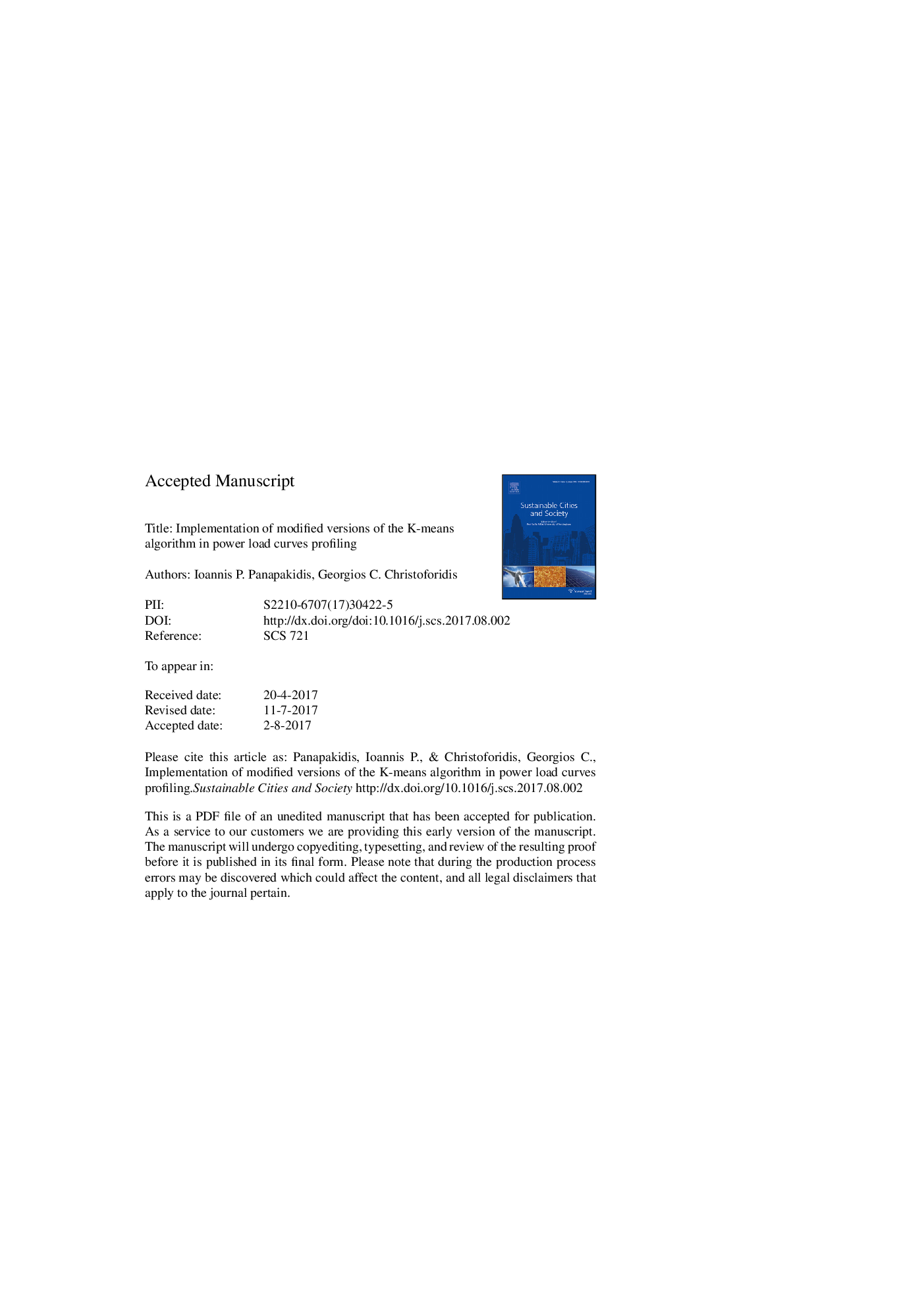| Article ID | Journal | Published Year | Pages | File Type |
|---|---|---|---|---|
| 4928081 | Sustainable Cities and Society | 2017 | 25 Pages |
Abstract
Recent approaches in load profiling involve the utilization of clustering algorithms to classify a load data set with little or no external information on its structure and relationships between the data is available. In the load profiling literature many algorithms have been presented. K-means is the most commonly used algorithms. While its robustness is already displayed, the main limitation lies on its dependence on the initialization phase. The present paper proposes two novel modified versions of the algorithm in order to deal with the aforementioned problem. Clustering is part of a multi-stage load profiling framework. Apart from the clustering itself, other stages include the selection of pattern representation technique and the extraction of “representative” consumers. Apart from the expressing the patterns as time sequences of load values, two other are utilized that refer to a dimensionality reduction method and statistical indexes. The comparison of the algorithms is held through four clustering validity indicators. Simulation results indicate that the proposed modified versions of the K-means lead to higher clustering accuracy in all cases examined. Moreover, the multi-stage clustering approach followed in this study leads to lower clustering time requirements, a fact that is significant in cases with vast amount of data.
Related Topics
Physical Sciences and Engineering
Energy
Renewable Energy, Sustainability and the Environment
Authors
Ioannis P. Panapakidis, Georgios C. Christoforidis,
